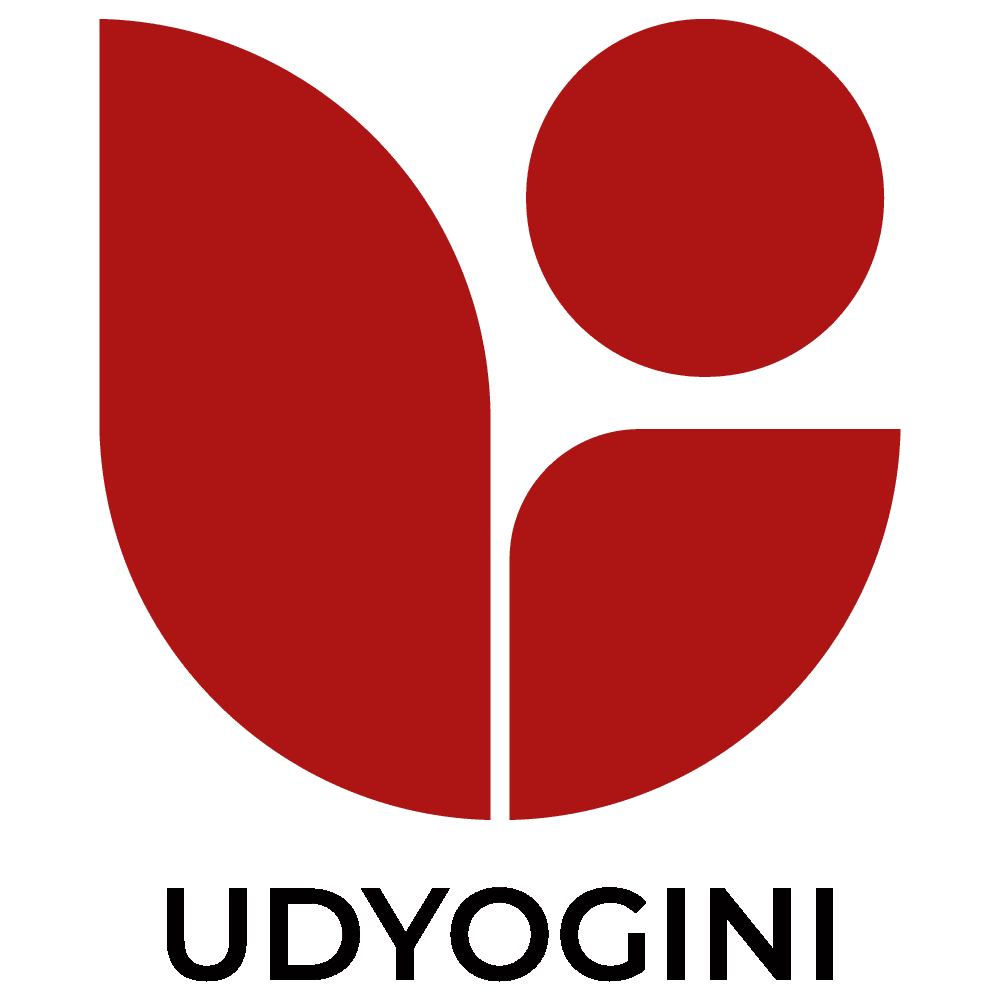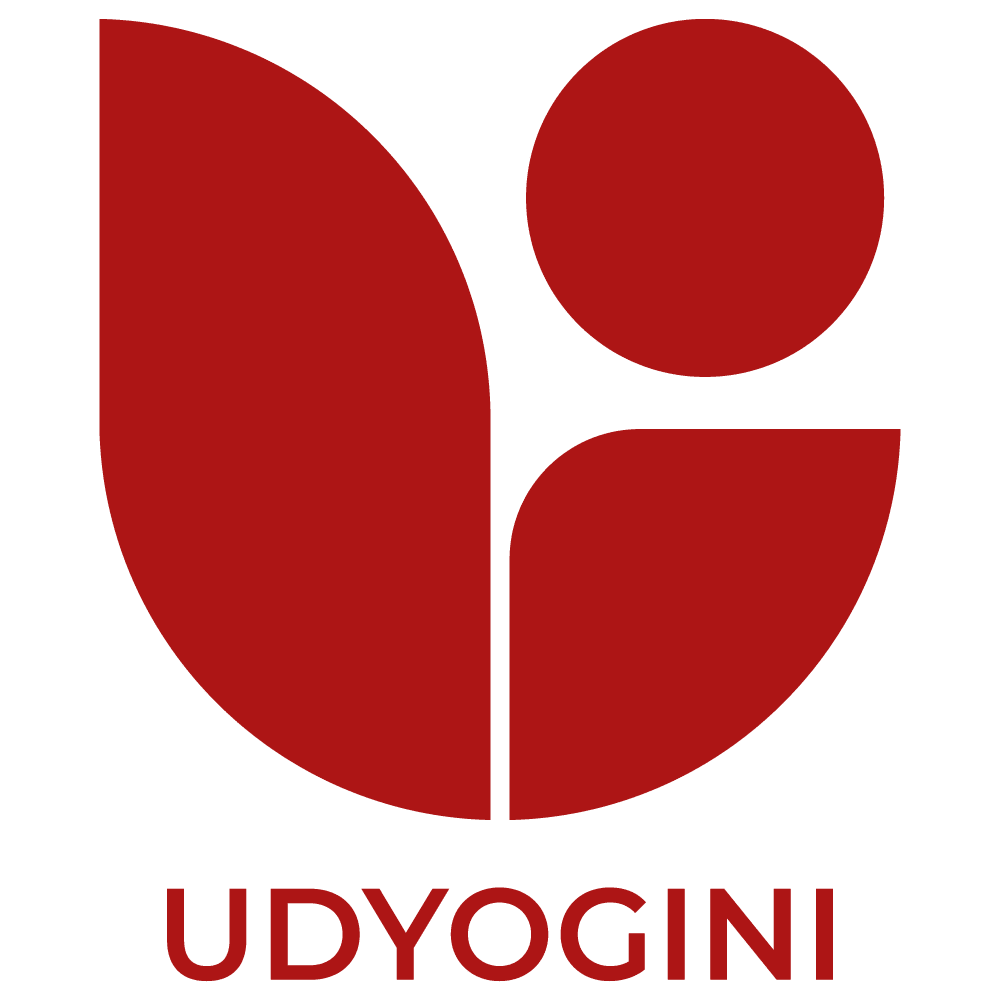Livelihood Development
By providing capacity building and skills for economic growth and inclusive development, a sustainable way of life is feasible. Interventions are made to help underprivileged communities have more stable employment opportunities, improved skills, and increased income. Udyogini affirms strengthening and nurturing existing livelihood options and introducing new ones by recognising the potential of a particular place. By putting a variety of cutting-edge programmes into practise, we assist women in creating stable and resilient livelihoods and permanently escaping poverty.
Capability enhancement, asset building, collectivization, and finally the addition of an entrepreneurial perspective for improvised and sustained revenue are the primary strategies used in livelihood sector efforts. Udyogini focuses on the basket approach, which ensures that rural families have income from multiple sources without having to be dependent merely on one source and thus feel more secure.
The power of collective effort
Aaturgaon is a village in Chhattisgarh’s Kanker district. In the year 2020, Udyogini entered the scene to better understand the potential of various livelihood opportunities for women. We learned there that villagers were already engaged in various income-generating activities, such as agriculture and allied activities, but were unable to earn enough money to live on.
To improve the economic situation of the families, Udyogini organised women into a women’s enterprise group of ten members and provided them with training on the Entrepreneurship Development Programme.
The idea for starting spawn production arose because many farmers in the surrounding areas cultivate mushrooms and find it difficult to obtain seed because it is not locally available and is usually obtained from Raipur and other places. Furthermore, technical training on spawn production was provided to group members on a regular basis in collaboration with Krishi Vigyan Kendrawas. They also needed a building to start the unit, so the Udyogini team and group members went to the Gramme Sabha and asked the panchayat members about setting up the enterprise and the need for a building.
They agreed to give the newly constructed community building to the women after seeing their enthusiasm. The group requested an electricity connection in order to run the machine in the unit, and they contributed INR 11,000 on their own. Udyogini provided them with machines such as BOD, laminar, and autoclaves, as well as raw materials such as calcium carbonate, calcium sulphate, formalin, wheat, dextrose, agar-agar, polythene, spirit, cotton, and rubber, to help them get started.
Despite all of the challenges the group faced in obtaining land and an electricity connection, they did not achieve success overnight. They encountered many difficulties at first in producing spawn because it requires proper care, attention, and practise, which the group did not initially understand, resulting in a lot of waste. With regular training, rigorous practise, and guidance from Udyogini, they sold 271 kg of spawn in 2020–21 and 283 kg in 2021–22, earning a net profit of INR 6,010 and INR 15,360, respectively. Now, they deal with approximately 110–120 farmers per year to sell the spawn. KVK Kanker regularly purchases mother spawn from the group.
The group gained confidence in producing spawn and managing the unit on their own, and they further hope to expand it for a higher profit. The group’s annual family income has now increased from INR 37,000 to INR 1,000,000 by engaging in various products such as lac, BYP, paddy, vegetables, and so on, in addition to mushroom and spawn production.
Developing barren land into money-making land
Lac is a major source of income in Jharkhand’s rural areas. Due to the height of the lac host trees, women rely on male family members for various management practises (tree climbing). Udyogini encourages the cultivation of lac in semialata plants. Because the plants are short (5 to 7 feet tall), women can easily perform all of the practises, from brood bundling and spraying medicine to lac harvesting. The best part is that semialata can be grown in arid conditions. Udyogini encourages farmers to use barren land for semialata cultivation as well as vegetable and mango intercropping. It enables producers to earn income from two sources while using the same plot of land.
Guruwari Devi is from the village of Husirhatu in the Ranchi district of Jharkhand. She and her husband, Shekhar Munda, make their living through agriculture and non-timber forest products (NTFPs). Despite their hard work, they were unable to produce and earn much due to limited cultivable land.
Udyogini began operations in Husirhatu in 2019. Udyogini encouraged all farmers with at least one acre of barren land to begin growing semialata. Guruwari Devi planted semialata plants alongside mango on one acre of land with the help of Udyogini and MGNREGA. After planting semialata and gaining technical knowledge from Udyogini, she began intercropping seasonal vegetables such as garden pea, cowpea, carrot, bitter gourd, bottle gourd, and cucumber on the same plot of land. She harvested vegetables during that year and earned INR 15000 from them, despite the fact that the semialata plants were very short and not mature enough to harvest. In the second year, she inoculated 30 kg of brood lac in semialata patches, yielding 125 kg of lac and earning INR 50,000/- from it, as well as INR 15,000/- from vegetables. Seeing the profit from the barren land, she inoculated 37 kg of lac in the following cycle, earning INR 60,600. She manages to carry out all of semialata’s intercultural operations without the assistance of others. After being trained by Udyogini, she practises scientific lac cultivation.
The impact on Guruwari is both personal and professional. Semialata has brought Guruwari Devi a long way, from the woman with no income to contributing to house repairs and sending her children to a better school. She serves as an example to the other farmers in the village. She is pleased to report that, thanks to her determination and hard work, she is now financially independent.


